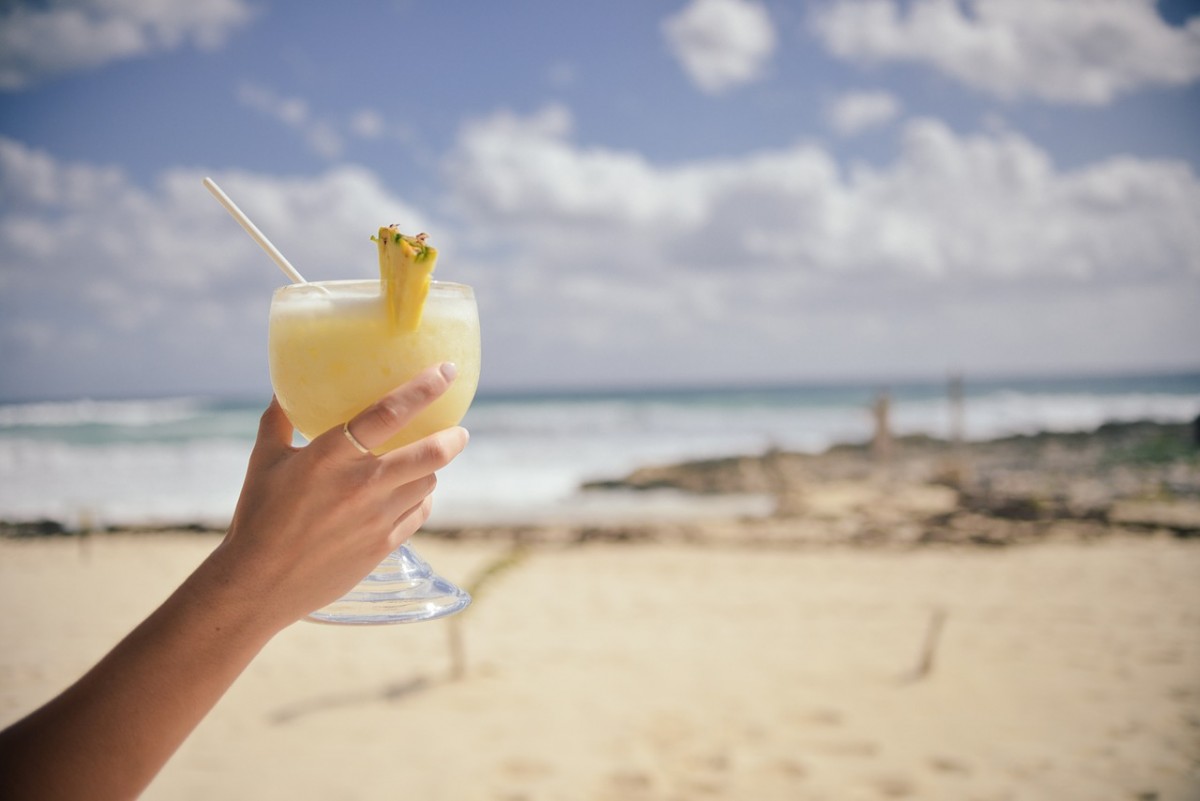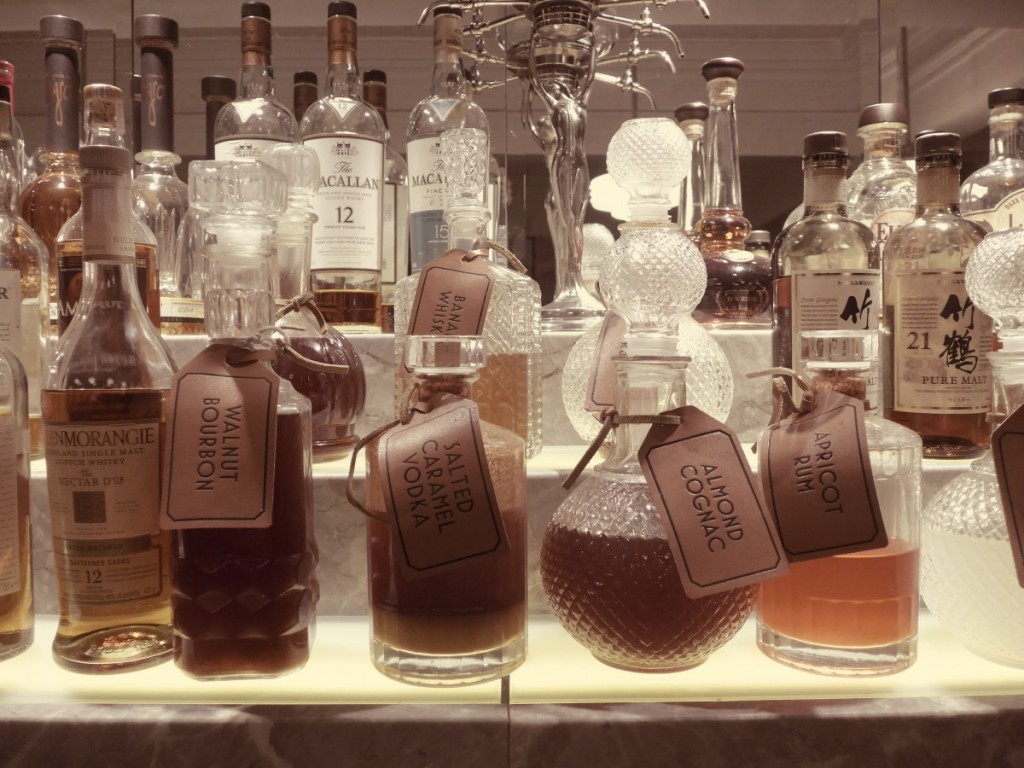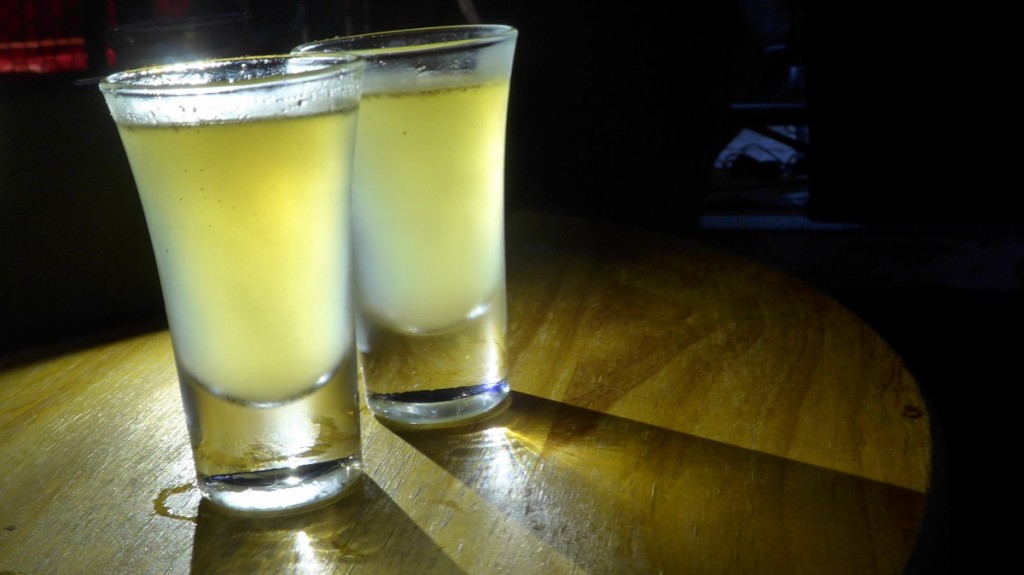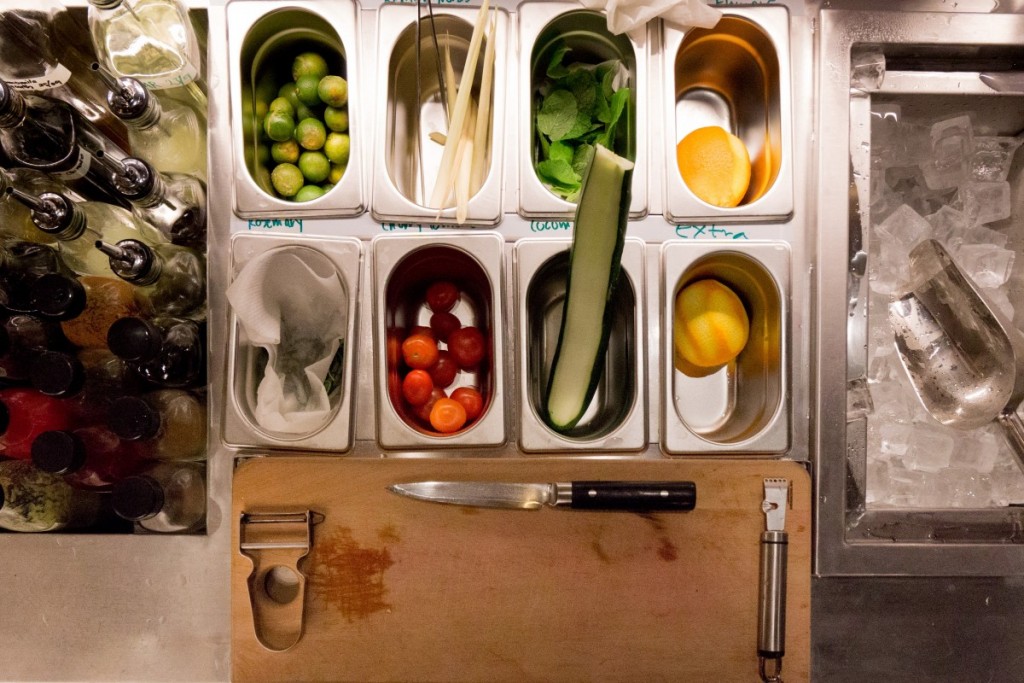
#2
CAN YOU TRADEMARK A COCKTAIL RECIPE?
29 Sep 2016 By David Fuhrmann-Lim
You created the cocktail, but is it really yours once it’s out there?
By Philip Greene
One of the most stressful drinks for a bar to put on its menu is one of the simplest: the Dark ‘n Stormy®. It’s certainly not the preparation that causes anxiety—just about anybody can make a serviceable version of this refreshing rum and ginger beer highball—but the brand of rum used can cause trouble.
It’s one of the few drinks (along with the Painkiller®) whose name is actually trademarked. In this case, Gosling’s Rum controls the moniker Dark ‘n Stormy, and if you put the drink on a menu it better be made with that brand of rum. If not, you might just get a cease and desist letter.
This, naturally, raises the question: Why aren’t more bartenders trademarking cocktail names? It’s a simple query with a long answer. Even as a trademark attorney and a cocktail geek, with one foot firmly in each field (well, maybe one is perched on the rail), I find it complicated to untangle.
To start at the most basic level, intellectual property comprises trademarks (names, logos, slogans), copyright (artistic and written works, music, etc.), patents (inventions), and trade secrets (proprietary formulas, like for Coca-Cola or Bénédictine). Generally speaking, a drink recipe, once published, cannot be protected by copyright. Recipes are considered facts, and facts typically aren’t protectable by copyright.
Trademark rights are there to protect the use of the mark, in this case, the drink’s name, against unauthorized use. They are not necessarily intended to protect anything beyond that, such as, perhaps, a formula. So how do you safeguard a recipe?
Take a lesson from iconic tiki bartender Don the Beachcomber. He kept his recipes secret so competitors could not steal them. Even his bartenders didn’t know the full list of ingredients in his famous concoctions like the Zombie.
The danger in this method is that rivals would simply throw random ingredients together and call the result a Zombie, eroding the reputation of the drink. (Which did, in fact, happen!) To sidestep this, Don the Beachcomber could have registered his signature drink names as trademarks, available only at his locations. This is where a trademark could have come in handy, but for whatever reason, he chose not to.

For example, Applebee’s has successfully registered the name Summer Squeeze® (rum and fruit juice) as a trademark, so presumably you couldn’t get that same drink at, say, TGI Friday’s. (A pity.) Hand Grenade® is also a registered trademark of a New Orleans bar called Tropical Isle. The cocktail’s name and distinctive green container are trademarked and its recipe is a trade secret, so only Tropical Isle can make and sell it. Theoretically, Tropical Isle could license the name and recipe to other bars, but it has been very vigilant in protecting its trademark, with both cease and desist letters and litigation.
These “venue-based” drinks are similar to, say, names from the fast food world, like Big Mac®, which we all know you can only get at McDonald’s.
There is a whole other category of drinks—the Bacardi Cocktail, the Pimm’s Cup, the 7&7—whose name includes a specific brand, and they’re also typically not tied to any one bar or restaurant. Making these drinks with any other brand is, to quote New York’s Supreme Court, “a subterfuge and a fraud.” (In the 1930s, Bacardi brought suit against people who made its signature drink with different kinds of rum.) I agree with the judgment. I mean, a Pimm’s Cup should be made with Pimm’s® just as a Rum & Coke should include Coca-Cola®.

So why don’t more bartenders trademark their cocktail names? Besides the cost and potentially small return, the sharing of recipes and knowledge has been at the heart of the craft cocktail revolution. (It was the same in the 19th century during the birth of the cocktail, which is perhaps why we know so few of the people who created the classic drinks.) And that’s not to mention the fact that many bartenders enjoy making and riffing on other people’s recipes. Ask the inventor of any modern classic, they’ll tell you how gratifying it is to see other bartenders making their creation.
It reminds me of the Napster debate 15 years ago. On the one hand, you had Metallica seeking to lock down “digital rights management” to protect their work, and on the other you had bands like the Grateful Dead displaying a more laid-back, hey-man-we-just-want-our-stuff-to-be-out-there perspective. Maybe most craft bartenders just don’t mind their drinks (both the names and the recipes) being made by others, provided they are made correctly (which is another matter).

Getting back to the Dark ‘n Stormy, can a trademark dictate how a drink is made? To me, it’s one of those “right for the wrong reasons” scenarios, and initially my answer was no. For starters, you cannot “trademark” a drink recipe, per se; that’s just not what trademarks are for. But because a trademark does give its owner control over use of the mark by third parties, arguably that owner could require that the drink be made a certain way. See, trademarks are designed to indicate source or origin. For example, the mark GUCCI® is intended to tell the consumer who made that handbag (knockoffs aside). Gucci can either make the bag, or it can license someone else to do so, and can impose as many criteria and restrictions as it wants (for example, dictating the quality and grade of the leather, hardware, packaging, no sweatshops, etc.).
But drinks are in many ways different. While most of us are simply not equipped to make a handbag, we could make a drink like the Dark ‘n Stormy if we just had some rum, some ginger beer, and a lime wedge for garnish. Further, while most of us would inherently know it was wrong to make a fake Gucci handbag in our garage, many bartenders are oblivious that some drink names are protected by trademark.
So back to that original question, can Gosling’s require the use of its rum in a Dark ‘n Stormy? Yes, not because trademarks protect recipes, per se, but because they give to their owner the right to control the quality of use of their mark by third parties.
My advice to a bartender? If you want to offer either the Dark ‘n Stormy® or the Painkiller®, but prefer to use a different rum, simply come up with your own name for the concoction and make a secondary reference to the original name, such as: “The Storm Surge: [brand name] dark rum, lime juice, ginger beer. Our variation on the classic Dark ‘n Stormy®.” That way, you make a descriptive or “fair use” of the trademark, which is kosher. Just as it’s kosher to say “CVS Ibuprofen, same active ingredient as Advil®.”
That way you can avoid a trademark headache, and save the Advil.
Read it at Daily Beast
Like this? The bar serves a great Dark ‘n Stormy

You might be interested in...
DRINK HERE: WRITERS BAR
Writers Bar at Raffles Hotel is an Oasis of Memories and Memorable Cocktails For The Cultured Drinker.
DRINK HERE: WHITE SHADES
The Self-Styled First-of-its-Kind Cocktail Playground in Singapore Offers Four Floors of Pours — In a Rather Fun and Fetching Way.
DRINK & EAT HERE: PUFFY BOIS PIZZA
Fun Cocktail + Fuss-Free Pizzas: This Should Be Your New Haji Area Hang.
DRINK HERE: WRITERS BAR
DRINK HERE: WHITE SHADES
DRINK & EAT HERE: PUFFY BOIS PIZZA